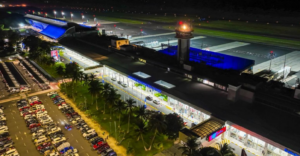The Economic Commission for Latin America and the Caribbean (ECLAC) reaffirmed its commitment to strengthening international cooperation and transforming the global financial architecture to promote more inclusive, productive, and sustainable development in the region. During a major international conference on financing for development, the UN regional agency called for urgent attention to the structural financing challenges facing Latin America and the Caribbean.

Led by its Executive Secretary, José Manuel Salazar-Xirinachs, the ECLAC delegation has taken an active role in the global forum, highlighting the need to implement fairer and more effective mechanisms for access to financing, as well as for debt management and equitable participation in global decision-making. According to the organization, the response to current challenges requires coordinated action at the multilateral level to close historical gaps and move towards the Sustainable Development Goals (SDGs).
ECLAC has insisted that, although the mobilization of domestic resources is essential to strengthen countries’ fiscal capacity, this alone is not enough. It is essential, it points out, a profound reform of the international financial system that considers the particularities and needs of developing countries, guaranteeing greater equity and access to resources to promote transformative investments.

During its participation in multiple panels and events, the Commission has highlighted key issues for the region, such as energy transition, digital transformation, financial inclusion, and productive innovation. These issues, considered pillars for sustainable development, also require timely, predictable, and accessible financing.
With its presence in this international space, ECLAC seeks to consolidate a collective voice for Latin America and the Caribbean, promoting a vision of development focused on social justice, economic resilience, and environmental sustainability, framed within a new global financial governance that responds to the challenges of the 21st century.







